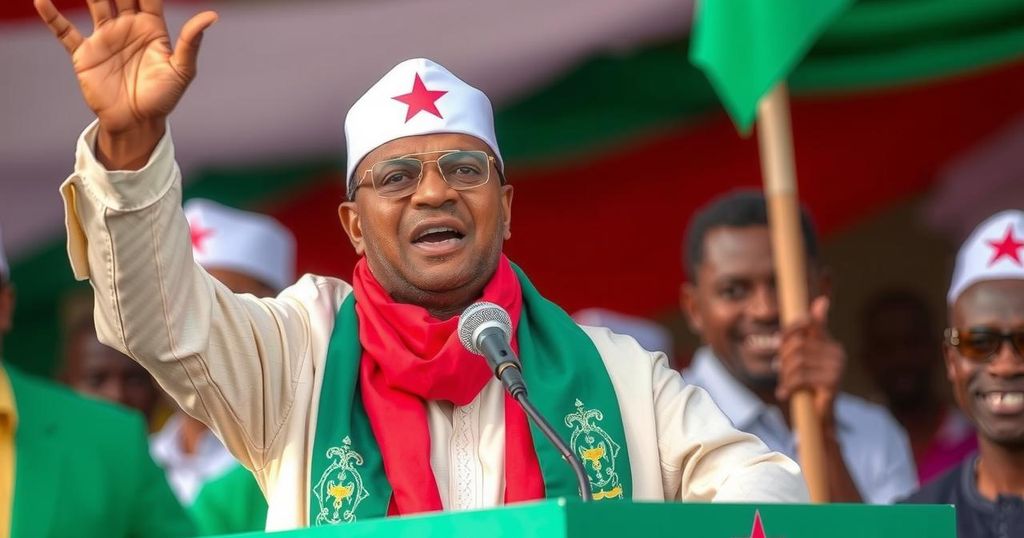Chad’s Ruling Party Claims Victory Amid Opposition Boycott in Elections

Chad’s ruling Patriotic Salvation Movement has won the majority in parliamentary elections, securing 124 of 188 seats. The elections were boycotted by opposition parties, raising concerns about transparency. President Mahamat Idriss Deby, who has recently severed military ties with France, faces scrutiny amid allegations of electoral favoritism.
In the recent parliamentary elections held in Chad, the ruling Patriotic Salvation Movement (MPS) of President Mahamat Idriss Deby has emerged victorious, securing 124 out of the total 188 seats in the National Assembly. The elections, marked by a significant boycott from opposition parties, were claimed by Deby’s government to represent a pivotal step towards establishing a democratic regime. The overall voter participation rate was reported at approximately 51.56%, raising questions about the legitimacy of the electoral process.
The National Elections Management Agency (ANGE) disclosed that 38 political groups will hold representation in the newly formed assembly, although the division of seats among non-MPS parties remains unclear. Opposition leaders, including Succes Masra of the Transformateurs party, have criticized the elections for lacking transparency, asserting that the electoral process was inherently biased—an allegation firmly rejected by the government.
President Deby’s ascent to power occurred following a military coup in 2021 that resulted in the death of his father, who had governed for thirty years. Deby assumed the role of interim leader before being elected in May 2022. Since gaining power, Deby has severed military cooperation agreements with France and has indicated a willingness to withdraw from a regional security alliance. These actions reflect a broader trend observed in several African nations distancing themselves from former colonial influences and forging closer ties with Russia. Recently, the Chadian government reported thwarting an attempted attack on the presidency, which it labeled as a “destabilization attempt.”
The political landscape in Chad has been under tumultuous conditions following the death of former President Idriss Deby in 2021. His son, Mahamat Idriss Deby, transitioned from interim leadership to an elected presidency amidst a climate of opposition dissent and accusations of electoral malfeasance. The ruling party’s victory in the parliamentary elections, primarily boycotted by opposition factions, raises significant concerns regarding the democratic process and the future of governance in Chad. The implications of military and political ties with France also pose critical questions about Chad’s geopolitical orientation amidst increasing influences from other powers such as Russia.
In summary, the recent parliamentary elections in Chad underscore a contentious political environment where the ruling party has claimed a decisive victory amid opposition boycotts. The lack of transparency alleged by opposition groups casts a shadow on the legitimacy of the electoral process, while President Deby’s governance raises concerns regarding democratic evolution in the nation. His administration’s shifts in foreign relations further complicate Chad’s standing within the region as it navigates a post-colonial landscape.
Original Source: www.dw.com








